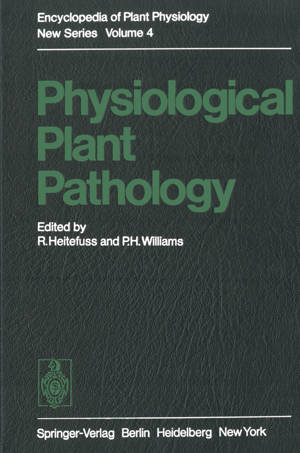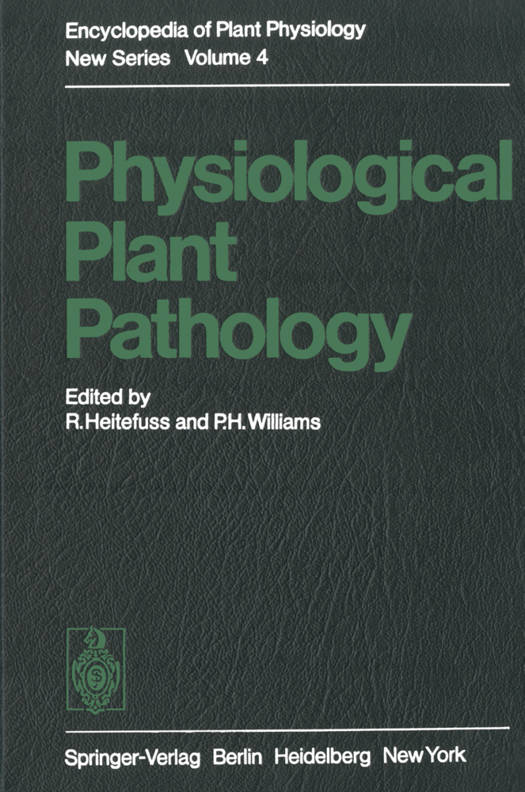
- Retrait gratuit dans votre magasin Club
- 7.000.000 titres dans notre catalogue
- Payer en toute sécurité
- Toujours un magasin près de chez vous
- Retrait gratuit dans votre magasin Club
- 7.000.0000 titres dans notre catalogue
- Payer en toute sécurité
- Toujours un magasin près de chez vous
Physiological Plant Pathology
167,95 €
+ 335 points
Description
Plant pathology embraces all aspects of biological and scientific activity which are concerned with understanding the complex phenomena of diseases in plants. Physiological plant pathology represents those specialities within plant pathology which focus on the physiological and biochemical activities of pathogens and on the response of host plant tissues. Today there is an increasing recognition on the part of the scientific agri- cultural community that only through a deeper and more fundamental under- standing of all the interacting components of the agricultural biota can we expect to improve our capabilities of feeding an expanding world population. It is in this context that physiological plant pathology has assumed new significance within the broader field of plant pathology. No longer are studies on the biochemistry and physiology of pathogens and pathogenesis merely isolated academic exercises; rather, a substantial coherent body of knowledge is accumulating upon which our understanding of the process of disease developmen t and host resistance is being founded. It is from these foundations of knowledge that ultimately new insights into the control of plant diseases may be expected to grow. It seems appropriate, therefore, that at regular intervals those involved in the various subspecialities encompassing the broadest aspects of physiological plant pathology reassess the contributions within the particular specialities in the light of new knowledge and technologies for the purpose of articulating new and productive directions for the future.
Spécifications
Parties prenantes
- Editeur:
Contenu
- Nombre de pages :
- 892
- Langue:
- Anglais
- Collection :
- Tome:
- n° 4
Caractéristiques
- EAN:
- 9783642662812
- Date de parution :
- 15-11-11
- Format:
- Livre broché
- Format numérique:
- Trade paperback (VS)
- Dimensions :
- 170 mm x 244 mm
- Poids :
- 1428 g

Les avis
Nous publions uniquement les avis qui respectent les conditions requises. Consultez nos conditions pour les avis.





